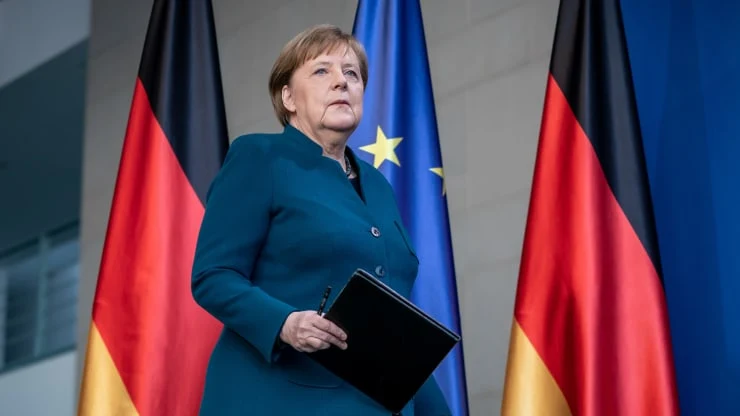German Chancellor Angela Merkel arrives to make a press statement on the spread of the new coronavirus COVID-19 at the Chancellery, in Ber...
 |
| German Chancellor Angela Merkel arrives to make a press statement on the spread of the new coronavirus COVID-19 at the Chancellery, in Berlin on March 22, 2020. Michael Kappeler | AFP | Getty Images |
Merkel’s decision to self-quarantine comes as the coronavirus pandemic continues to escalate across Europe, including in Germany.
Germany, the European Union’s largest economy, has banned meetings of more than two people in public for the next two weeks to contain the spreading virus. Exceptions will be made for people who live together and for work-related gatherings. “The great aim is to gain time in the fight against the virus,” Merkel said during a press briefing Sunday.
Germany is one of the hardest-hit countries in the world, with more than 23,000 people who have tested positive, according to data from Johns Hopkins University. At least 92 people have died from the virus in the country. Europe is in a state of lockdown as the epicenter of the global pandemic has shifted from China to countries like Italy, Spain, Germany, and France. These countries, the largest economies in the EU, have closed all nonessential shops, bringing economic life on the continent to a standstill.
Germany has effectively closed its borders temporarily with France, Switzerland, Austria, Denmark, and Luxembourg to stop the virus from spreading. As the pandemic spreads, there is growing concern that world leaders could contract the virus, potentially impacting critical functions of government.
U.S. President Donald Trump tested negative for the virus after contact with Brazilian President Jair Bolsonaro’s press secretary, who tested positive. Bolsonaro tested negative. Vice President Mike Pence also tested negative after a member of his office tested positive. Canadian Prime Minister Justin Trudeau’s wife tested positive for the virus.




